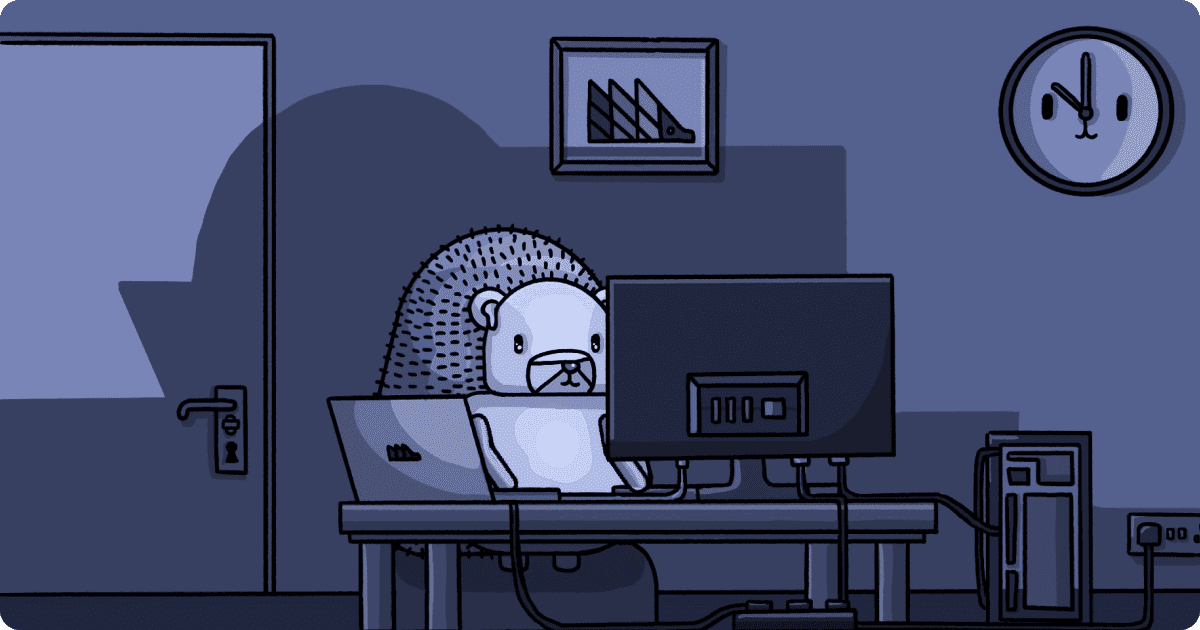Each month, we speak to a team enrolled in PostHog for Startups about the way they work and the challenges they face.
Golioth is an IoT developer platform that enables engineers to securely capture IoT sensor data, issue OTA firmware updates, and manage fleets of connected devices — but therein lies a challenge: how do you create cloud software for hardware that's always new and rapidly evolving?
“Hardware and software development are very different worlds,” says Golioth Founder and CEO Jonathan Beri. “Hardware? It’s slow. It’s hard. It’s incredibly complicated. And software too has its own unique challenges, even before you add IoT into the mix!”
Golioth's solution has been to divide and conquer.
“On the firmware side we have longer release cycles,” says Golioth Product Manager Dylan Swartz. “If we shipped every every single day, customers couldn’t keep up. But on cloud we’re much more agile - and there are four essential principles we apply universally."
1. Put customers at the heart of product development
Golioth is an incredibly customer-driven team, and invests a lot of time and effort in speaking with users, collecting feedback and understanding the user experience.
“We obviously have a long-term vision, but customer feedback always has the highest priority over everything else,” says Dylan. “We even use PostHog to help with this by using feature flags and session replays to test new updates with users who ask, or to debug issues they face.”
One of the ways this customer focus manifests is in Golioth’s reference designs for hardware projects, which the team creates in order to help hardware engineers.
“We don’t make hardware ourselves,” says Jonathan, “but we know these references help users to prove out ideas more quickly. That, in turn, means they’re going to be more successful.”
Recommended reading: Dylan is currently reading David and Goliath: Underdogs, Misfits, and the Art of Battling Giants by Malcolm Gladwell, and recommends it for inspiration about early-stage startups can succeed.
2. Hire people who understand the challenges you want to solve
Of course, there’s little point collecting feedback if you don’t have the skills and empathy that are needed to understand and act on it. This, says Jonathan, is why Golioth has focused on hiring engineers who have a keen understanding of both hardware and software development.
“Imagine a CDN company,” explains Jonathan. “They don’t build large-scale web apps themselves, but they have to understand the challenges that their customers face — and so they build internal expertise by hiring great people. We do the exact same thing.”
Jonathan points to Dylan as a clear example of this in practice. Prior to joining as Golioth’s Product Manager, Dylan had begun his career in software engineering, before moving the building customizable smartphones and tablets for businesses. As a result, he’s able to empathize closely with Golioth’s users and shape the roadmap accordingly.
3. Use open-source to bootstrap new products
Contributing to open-source communities is ingrained in Golioth’s culture from an engineering standpoint, but it’s also a competitive advantage which they’ve seized from the start.
“Software on hardware has historically been closed source,” explains Jonathan. “Over the last decade, that’s started to change however and it’s been very exciting. Golioth as a company probably couldn’t have gotten started if it wasn’t for open-source projects we could build on.”
By adopting open source as the basis for much of its work, Golioth (like PostHog) unlocks a lot of advantages that aren’t available to closed-source projects. One of these is an opportunity to incorporate features from other, dependent open source projects.
Community spotlight: Jonathan credits the Zephyr as the most crucial open source project to Golioth’s own creation, and the team continues to regularly contribute upstream to it as a result.
4. It’s never too early to think about sales
“I didn’t take this to heart for a long time, but everyone at the company should be thinking about sales and learning how to become a salesperson,” says Jonathan. “Everyone. Sales needs to be part of your DNA.”
At Golioth, this focus on sales doesn’t mean that everyone spends their time cold-calling, but that they understand and act on the financial realities of the business. This can involve knowing being able to speak authentically about the company, but it can also mean focusing on projects which enable the company to grow.
“You need to constantly be working towards sales,” says Jonathan, “Because that first sale is the most important — and so are is the second, the third, the fifth, the eleventh. They’re all important and so you need to be learning about it. As someone who came from a technical product management background I really wish I’d spent more time learning about sales!”
Golioth is a member of PostHog for Startups, where it benefits from over $50,000 in credit and the opportunity to connect with other early-stage teams.

